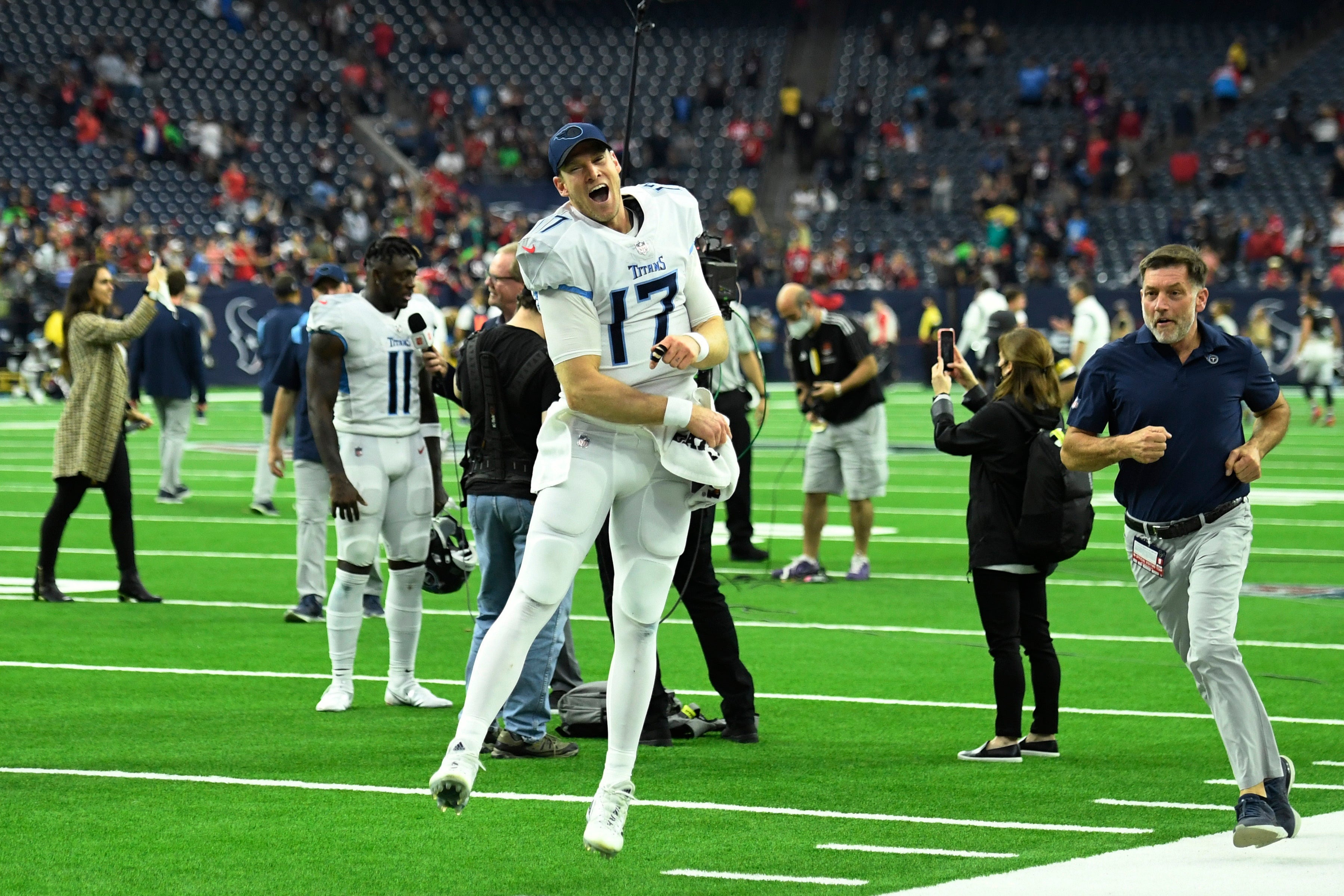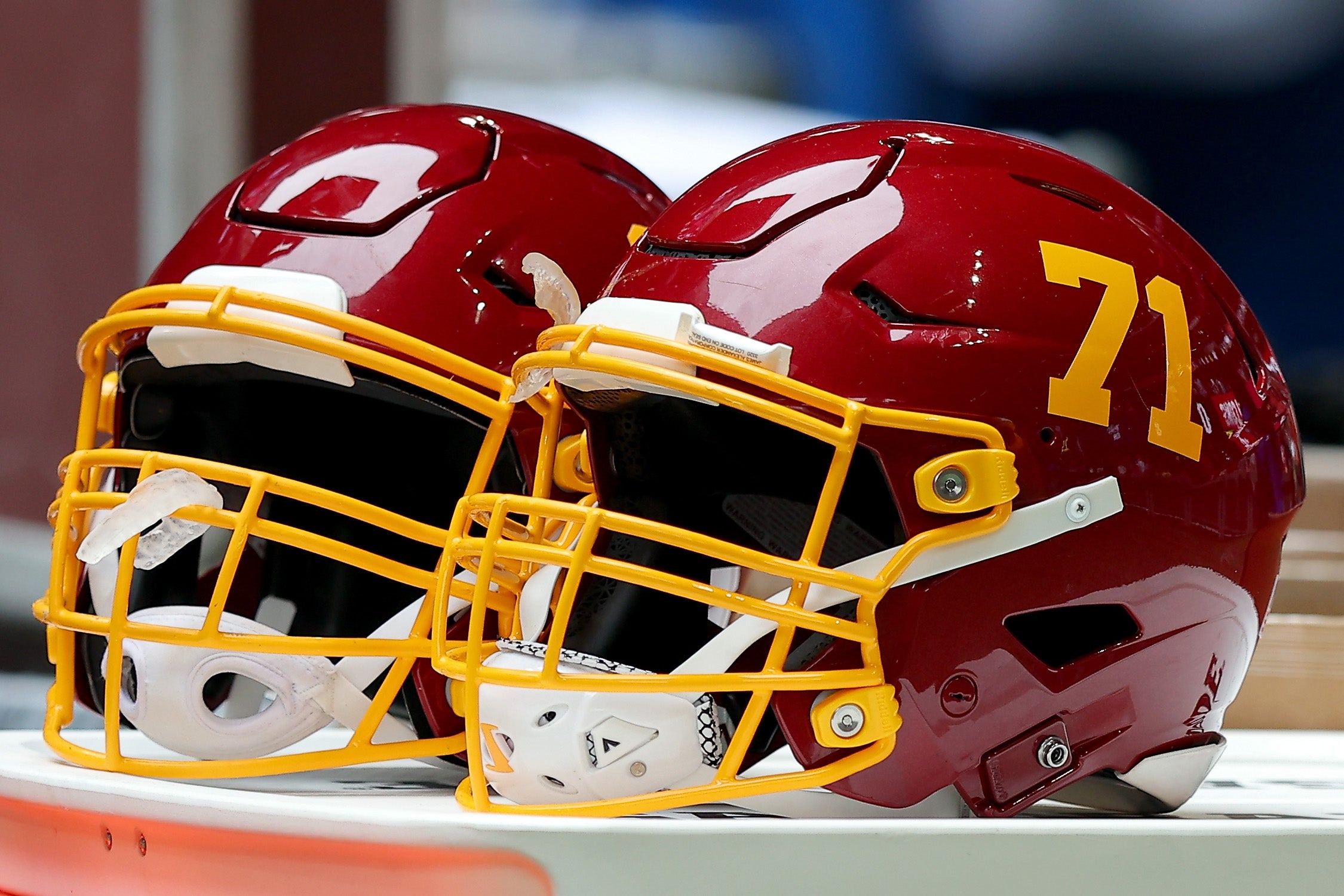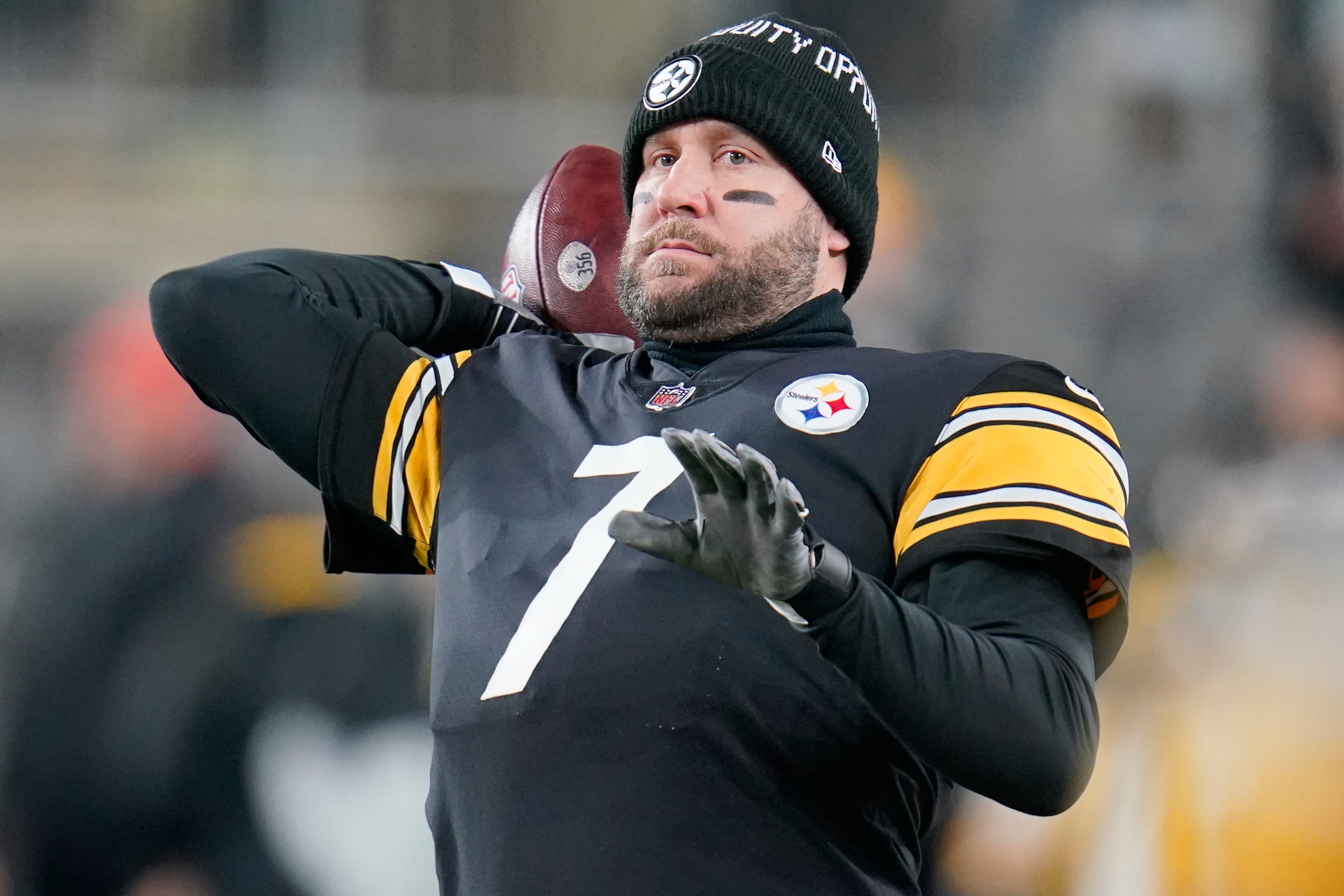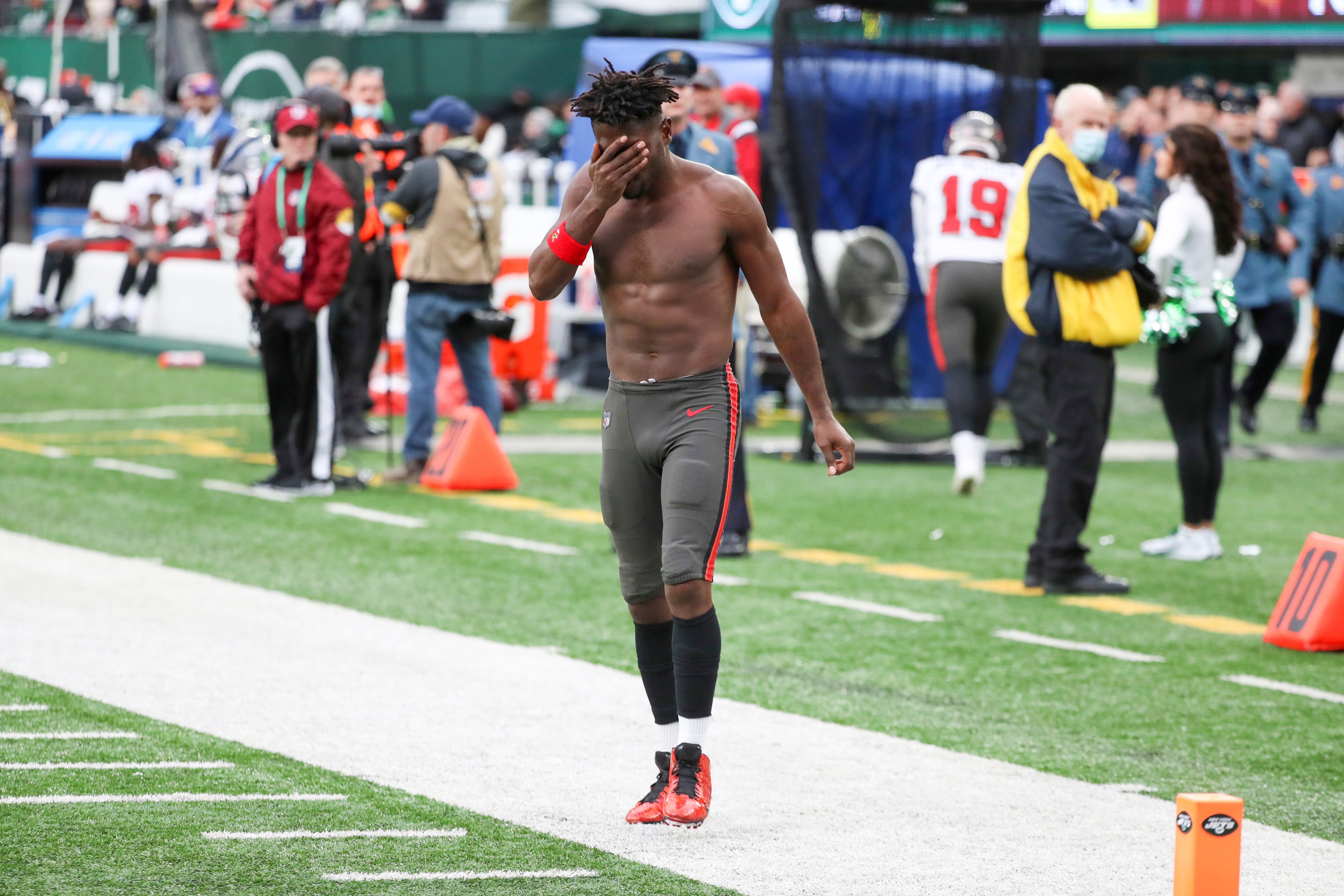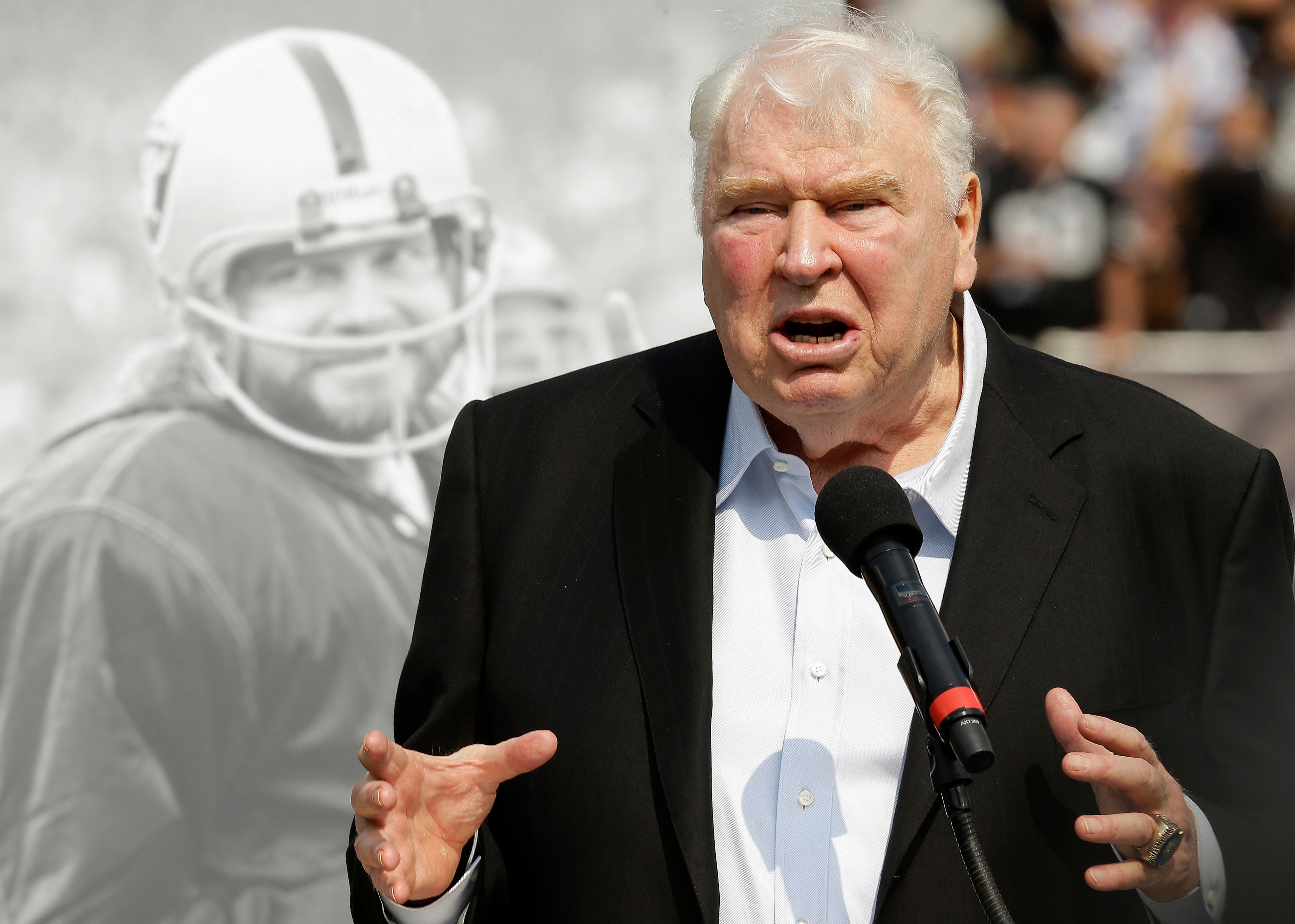Cincinnati Bengals vs Las Vegas Raiders: Two franchises renew NFL rivalry of significance
Las Vegas Raiders tight end Darren Waller looks on before playing the Cincinnati Bengals
Some NFL playoff games evoke epic events. Saturday night’s wild-card matchup between the Dallas Cowboys and the San Francisco 49ers is a clash of heavyweights with a history to match.
For an American football fan the words ‘The Catch’ conjure up a 41-year-old image of Joe Montana’s remarkable last-minute touchdown throw to Dwight Clark that gave the 49ers a 28-27 victory and a place in the Super Bowl. “You’ve just beat America’s Team,” Ed ‘Too Tall’ Jones said to the quarterback. “F**k America’s Team,” Montana spat back. The post-season matchups between the teams became iconic in an instant.
Saturday’s visit of the Las Vegas Raiders to the Cincinnati Bengals does not have the romance and rancour of the Cowboys-49ers rivalry. Yet the last time the two AFC franchises met in January, the game contained an incident that had a significant impact on American culture. It has been largely forgotten. But if you know, you know.
The divisional contest, in 1991, was unremarkable in itself. The itinerant Raiders were coming to the end of their time in Los Angeles (in Britain, where regular NFL coverage only began in 1982, the year the team moved south from Oakland, many fans had only ever known the franchise as the LA Raiders). The game took place in the Coliseum and did not capture the public imagination. It failed to sell out and the Raiders had to give away a tranche of tickets to area schools to avoid a local TV blackout.
The home team won 20-10. The defining moment came in the third quarter. Bo Jackson, the Raiders running back, was tackled at the end of a 34-yard run by the Bengals linebacker Kevin Walker. Jackson limped off the field with a hip injury. No one knew but his football career was over. The ramifications stretched way beyond the NFL.
Recommended
Jackson was the biggest sporting star in America. Bigger, even, than Michael Jordan. He was the man who made Nike the dominant sportswear brand in the US and, at the time of his injury, Jackson was the most marketable athlete in the world.
The Raiders running back played two sports: gridiron and baseball. He was good enough to make Major League Baseball’s All-Star game twice. His appearance in the NFL Pro Bowl in 1990 means he is the only individual to have been selected as an all-star in both disciplines. But it was a TV advertising campaign that catapulted him into the public consciousness beyond the world of sport.
In 1989 Nike were huge. They had capitalised on Jordan’s developing status as the greatest player in basketball history and Air Jordans were the most prized brand of athletics shoe. The catchphrase, ‘Just Do It,’ had gone global. There was only one problem. The Chicago Bulls superstar could not carry Nike to the top of the market. Reebok, a company founded in Bolton, remained ahead in sales. Until Jackson arrived on the scene.
One of Nike’s creative team watched the Kansas City Royals slugger hit a home run in the All-Star game and came up with the idea that Jackson could be projected as a universal athlete, a man who could dominate any sport he tried. The ‘Bo Knows…’ campaign for cross-trainer shoes began from this notion.
It started off simple: “Bo knows football, Bo knows baseball.” From there it was expanded. The big names on Nike’s sponsorship roster were drafted in to play their part. Jordan was enlisted to provide the “Bo knows basketball” line. Ian Rush told British audiences “Bo knows [ital] real [ital] football.” Jackson was filmed in a variety of kits and, using special effects, a group of Bos admired each other’s sporting prowess.
A dash of humour helped. Wayne Gretzky, another Nike stalwart, watched Jackson on the ice and, against expectations, shook his head and merely said, “No.” The tour de force of the series of adverts showed Jackson with a guitar on stage with Bo Diddley, allowing the veteran bluesman to shake his head at the sportsman and mutter “Bo knows diddley.”
Much of Reebok’s sales were driven by celebrities. Mick Jagger cavorted in a pair of Freestyle on the ‘Dancing In The Street’ video with David Bowie. Jane Fonda wore them in her hugely popular aerobics videos. The ‘Bo Knows’ campaign crossed the sporting-cultural firewall, though, and lifted Nike above their rivals. Even Jackson’s injury did not halt the company’s momentum.
It did stop the running back playing in the NFL. He had avascular necrosis, a loss of blood supply to the bone. Jackson claimed his hip was dislocated by the tackle and he popped the joint in manually, exacerbating the condition.
After that, Jackson became a single-sport athlete and his baseball career was badly compromised. He played for three more seasons – one of which he missed to have a hip replacement – and never recaptured his former brilliance.
As Jackson began to fade from the scene, Jordan grew in even more stature, leading the Bulls to the first of his six NBA championships five months after the fateful afternoon in the Coliseum. The basketball icon’s attempt to play top-flight baseball did not quite go as well as Jackson’s, though. Jordan never got out of the minor leagues.
There is a school of thought that if Jackson had not suffered the injury then he could have been the first Hall of Famer in both sports. If that would have happened, how would it have affected Jordan’s status? Would Jackson have been the premier figure of the 1990s?
In retrospect, the man who won the Heisman Trophy as college football’s best performer while at Auburn University in 1985 believes that playing in the NFL was a mistake. Had he concentrated on baseball, a less physically dangerous activity, his legacy might have been stronger.
Bengals fans remember the game well. They have not won a playoff game since. There is talk of the ‘Curse of Bo’ in southwestern Ohio. There are likelier explanations for Cincinnati’s inadequacy over the ensuing three decades.
Recommended
On a final note, as Jackson walked off the Coliseum field, no one knew the extent of his injury. He was accompanied by his two young sons and seemed rather offhand towards the television interviewer. In the immediate aftermath, some fans on the phone-ins of Southern California’s sports radio stations thought that the running back did not show enough respect to the legend of the game with the microphone.
Jackson did not seem to have much time at all for a certain OJ Simpson. Perhaps the ads were right. Bo knew all along.
Registration is a free and easy way to support our truly independent journalism
By registering, you will also enjoy limited access to Premium articles, exclusive newsletters, commenting, and virtual events with our leading journalists
{{#verifyErrors}} {{message}} {{/verifyErrors}} {{^verifyErrors}} {{message}} {{/verifyErrors}}
By clicking ‘Create my account’ you confirm that your data has been entered correctly and you have read and agree to our Terms of use, Cookie policy and Privacy notice.
This site is protected by reCAPTCHA and the Google Privacy policy and Terms of service apply.
Already have an account? sign in
By clicking ‘Register’ you confirm that your data has been entered correctly and you have read and agree to our Terms of use, Cookie policy and Privacy notice.
This site is protected by reCAPTCHA and the Google Privacy policy and Terms of service apply.
Source: Read Full Article

